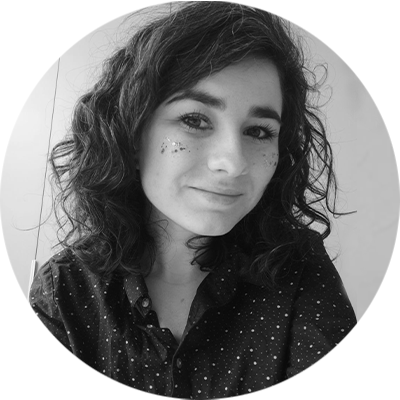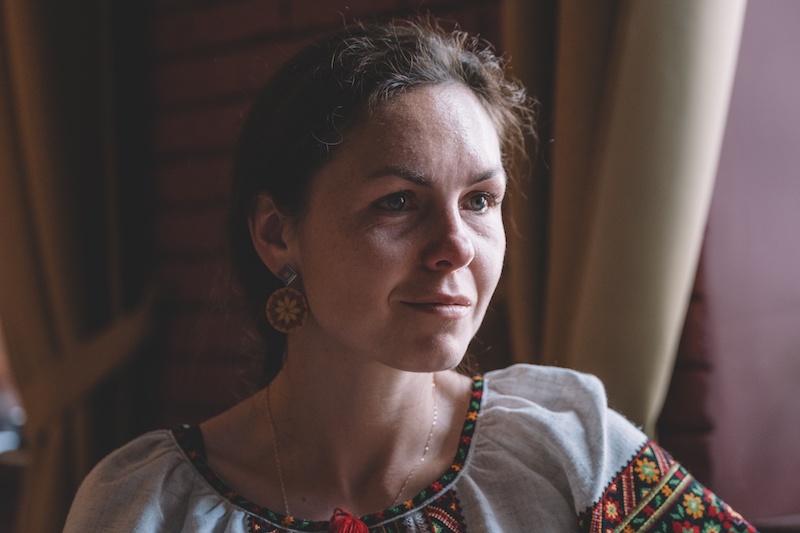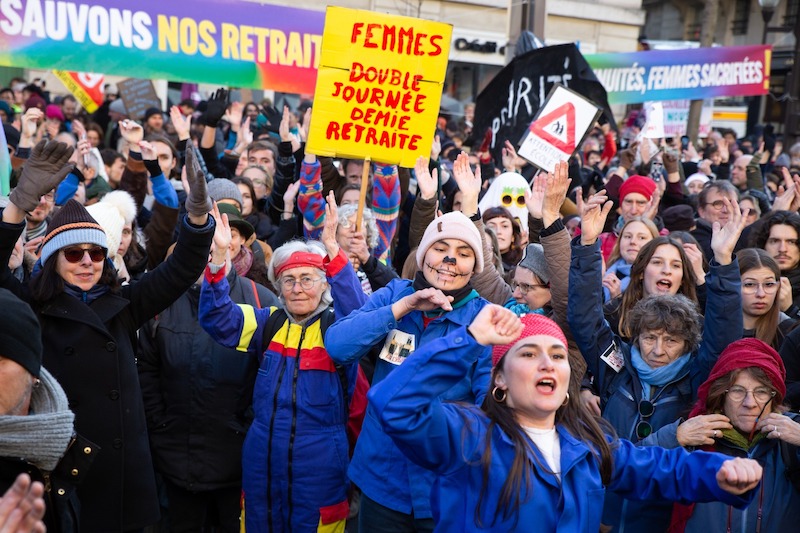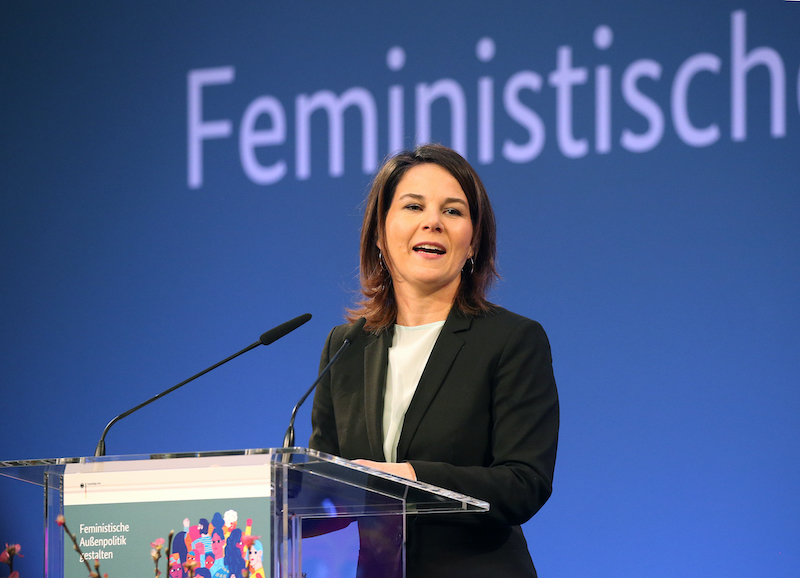Tamara, 34, has a delicate frame, an elegant face and a bright smile. She is always happy to have her picture taken, loves talking to her six-year-old son about different car brands, and collects vintage Ukrainian clothes and accessories. She still wears a wedding ring, despite recently becoming a widow, like thousands of other Ukrainian women after a year of full-scale war.
Her husband Oleksiy Yanin was a world champion in Thai boxing ― and a soldier with the Azov regiment since 2014. Azov defended the frontline in some of the most intense moments of the war so far, and last April its soldiers were surrounded by the Russian Army in Mariupol. Oleksiy died there.
Tamara had a hard time coping with his death. She didn’t even kiss him goodbye at the train station on the morning of 24 February, when she last saw him. “Everything I do now is for you, about you, in the name of your memory,” she writes in messages to Oleksiy, which he will never read. Her gratitude and pride have become stronger than pain. Caring for others is what gives her strength now.
A month after Oleksiy’s death, she began to take care of the families of other dead Azov soldiers. Tamara met them in chat rooms where relatives were discussing how to identify bodies and bury their remains. Many of these women used to live in the now-occupied territories, so they lost not only their husbands or sons, but also their home, belongings and their livelihoods. Tamara began collecting clothes, food, medicine, hygiene products and books for women and children displaced by war, and helps them find jobs and a place to stay. In a room she uses as a location for goods and aid, the walls are covered with widows’ phone numbers.
“I just love all of them, unconditionally. I understand them like no one else. And this is how I thank their husbands,” says Tamara. She has stepped out of her role as a traditional wife and a mother of a son on maternity leave, and has become a “collective mother”, supporting women united by grief and loss.






